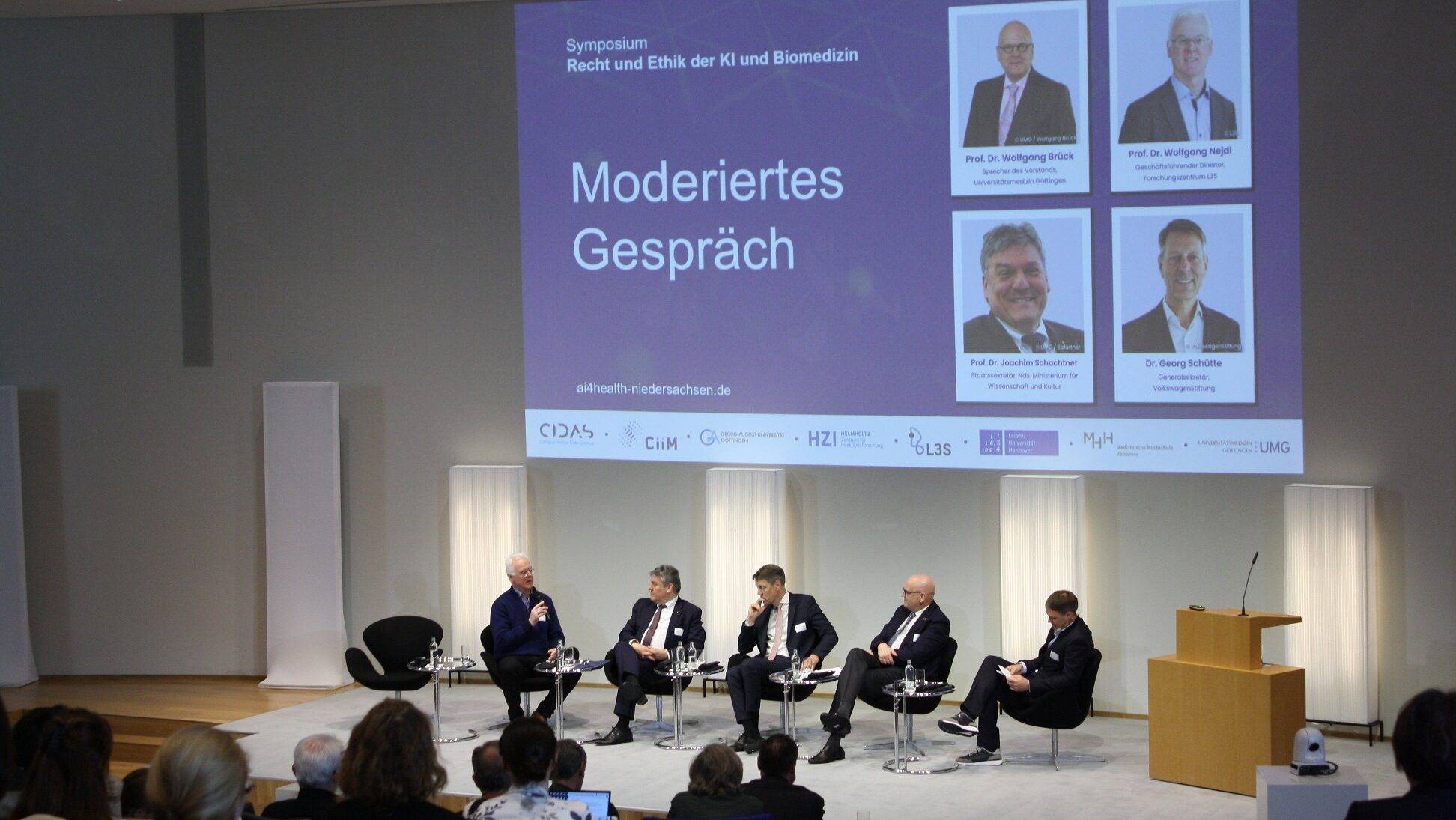State of Lower Saxony and Volkswagen Foundation fund consortium from the fields of computer science and medicine with around 15 million euros
Improved healthcare and a strengthening of personalized medicine medicine: a new research center for artificial intelligence and causal Intelligence and Causal Methods in Medicine (CAIMed). Researchers from
computer science and medicine from Hanover, Göttingen and Braunschweig are developing
innovative methods and applications of artificial intelligence. The Ministry of Science and Culture (MWK) and the Volkswagen Foundation Foundation are providing 15 million euros over the next five years from the joint program “zukunft.niedersachsen” over the next five years. The spokesperson is Prof. Dr.
Wolfgang Nejdl from the L3S research center at Leibniz Universität Hannover (LUH) has taken on the role of spokesperson.
The digitalization of the life sciences opens up completely new potential for new potential for overcoming widespread diseases such as cancer, cardiovascular diseases, diabetes and Alzheimer’s. The center therefore relies on the linking research data and patient care data, the use of artificial
use of artificial intelligence and causal methods in medicine. This will make prevention, diagnostics, therapy and the monitoring of therapeutic therapeutic success become more effective and efficient and the individual needs of each person can be better identified and served. The researchers are concentrating on the medical oncology, cardiovascular and pulmonary medicine and infectious diseases.
“With CAIMed, research in Lower Saxony is consistently implementing the necessary interdisciplinary and interdisciplinary and cross-method networking of its research activities and brings together the strong life science and data science expertise in the metropolitan region of Hanover-Brunswick-Göttingen Wolfsburg closer together. Using methods of artificial intelligence and machine learning, the aim is to new impetus for modern, increasingly personalized medicine in order to personalized medicine, in particular to provide patients suffering from one of the patients suffering from one of the most widespread diseases,” says Falko Mohrs, Lower Saxony’s Minister for Science and Culture.
“If we want to take advantage of the opportunities offered by artificial intelligence, we need to master the technologies and develop them further. The CAIMed network brings together brings together expertise from different locations. Together together, we can place Lower Saxony visibly on the map of AI research
research and thus attract talent from all over the world,” says the Secretary General of the Volkswagen Foundation, Dr. Georg Schütte.
CAIMed spokesperson Prof. Dr. Wolfgang Nejdl (LUH) adds: “In the Lower Saxony Research Center for Artificial Intelligence and Causal Methods in Medicine methods in medicine, we are developing innovative methods for improved and improved and personalized healthcare. In doing so, we provide solutions to urgent challenges in global healthcare. By bringing together excellent locations in Lower Saxony for methodical AI research, data-intensive medicine, medical informatics and basic medical research
and basic medical research, we are creating a unique lighthouse for lighthouse for research into artificial intelligence and personalized medicine.”
“In addition to the development of artificial intelligence methods, our focus is on the transfer to clinical application. The aim of our research activities is to use AI to improve decision-making and therapy in the treatment of patients. This will significantly increase the efficiency of our healthcare system in the future,” says Prof. Dr. Wolfgang Brück, Spokesman of the Executive Board of the University Medical Center Göttingen.
The center is supported by scientists from the Research Center L3S at the LUH, the Hannover Medical School, the Helmholtz Center for Infection Research Braunschweig, the Technical University of Braunschweig University of Braunschweig and the Georg-August-University Göttingen / Campus Institute Data Science (CIDAS) and the University Medical Center Göttingen.
Read more about CAIMed on the official website: www.caimed.de
Consortium
- Prof. Dr. Wolfgang Nejdl (Managing Director, L3S Research Center, Leibniz Universität Hannover, spokesperson for the CAIMed consortium)
- Prof. Dr. Ramin Yahyapour (Managing Director, Campus Institute Data Science (CIDAS), Georg-August-Universität Göttingen)
- Prof. Dr. Niels Grabe (Institute of Pathology, University Medical Center Göttingen)
- Prof. Dr. Dr. Michael Marschollek (Peter L. Reichertz Institute for Medical Informatics at TU Braunschweig and Hannover Medical School; L3S Research Center)
- Prof. Dr. Michael Meyer-Hermann, Head of the Department of Systems Immunology at the Helmholtz Centre for Infection Research in Braunschweig


